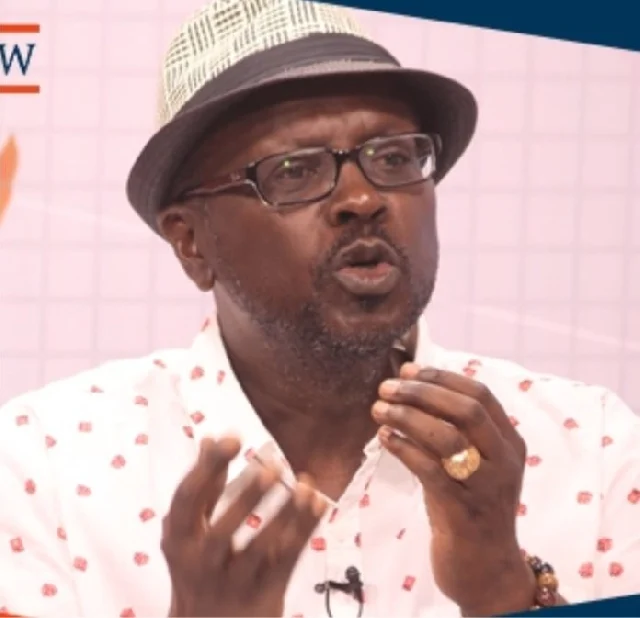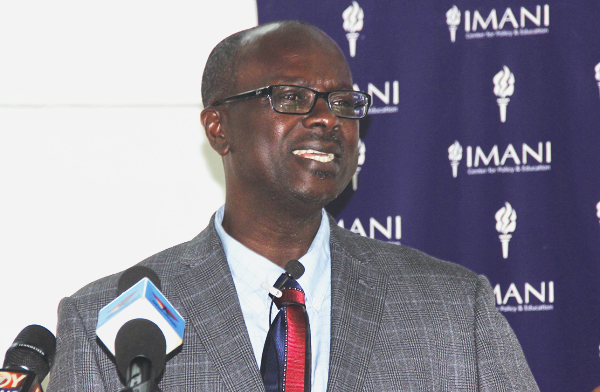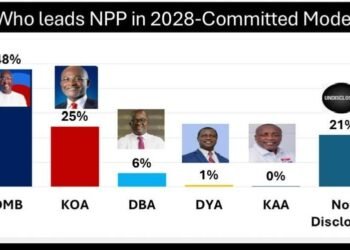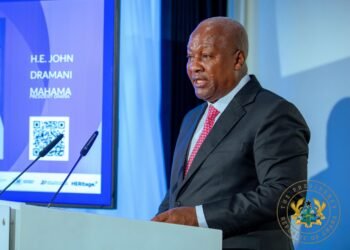In Ghana’s ever-dramatic political landscape—symbolically referred to as Umuofia—a familiar pattern of selective outrage, political maneuvering, and convenient moral posturing is once again in motion.
Professor Stephen Kwaku Asare, a Democracy and Development Fellow in Public Law and Justice at the Centre for Democratic Development (CDD-Ghana), has delivered a scathing critique of the country’s shifting political discourse.
His latest commentary, Neutrals, Yaanom, and the Politics of Convenience in Ghana (Umuofia), highlights how partisan actors, whom he calls Yaanom, have suddenly taken a keen interest in questioning the neutrality of independent voices.
“A few Yaanom, those ever-zealous partisans who see politics not as governance but as war, have developed a new hobby. They now call upon the so-called ‘neutrals’ to comment on the state of affairs under the new president.
“But let us not be deceived, my brothers and sisters. These calls are not born out of any genuine interest in governance, policy, or the sacred duty of keeping power accountable.”
Professor Stephen Kwaku Asare, D&D Fellow in Public Law and Justice at CDD-Ghana
In his analysis, Professor Asare described how certain partisan figures have begun whispering into the ears of the public: “Ah, see how quiet they are now? Where is their fire? Where is their criticism? Have they been bought? Are they now compromised?”
According to him, these insinuations are designed to raise doubts about neutrals’ integrity, suggesting that they have suddenly gone silent due to political affiliations or underhanded deals.
However, Professor Asare argued that such accusations are either a display of sheer mischief, a desperate attempt to rewrite history, or an indication that these critics are new to the political scene.
He asserted that, contrary to “Yaanom’s” claims, neutrals were far more critical of the current President during his first term than they were of his predecessor. This, he stressed, is not mere speculation but a pattern that has played out consistently over the years.
Historical Bias and Political Memory
Moreover, Professor Asare pointed out that the so-called neutrals have historically been tougher on the “New Deliverance Congress (NDC)” than on the “Noble Progressive Party (NPP)”. This, he opined, is not an opinion but a fact deeply embedded in Ghana’s political memory.
More significantly, he suggested that the lack of early and intense criticism of the previous President contributed to his eventual downfall.
“Ah, what a rope! So long that he could jump, dance, even swing from it—thinking himself untouchable—until, alas, he tied himself into knots. The very lack of early, piercing criticism allowed him to believe he could get away with things that no New Deliverance Congress regime could have dared to attempt.
“And in the end, it was that false sense of security, that dangerous complacency, that hastened his downfall.”
Professor Stephen Kwaku Asare, D&D Fellow in Public Law and Justice at CDD-Ghana
According to Professor Asare, the current administration has been in office for just two months—too short a period to warrant the level of outrage that ‘Yaanom” are demanding from neutrals.

True accountability, according to Professor Asare, requires that a government first be given time to govern before being assessed.
Despite this reality, the renowned legal scholar was bewildered that partisan actors who were once silent enablers of the previous government now demand immediate scrutiny and activism from the very people they once dismissed. This, Professor Asare noted, is the height of hypocrisy.
The Selective Morality of Partisan Actors
One of the most striking observations in Professor Asare’s analysis is the way political actors switch principles depending on who is in power.
Those who once ridiculed neutrals and ignored their calls for accountability now insist that these same individuals be at the forefront of political criticism.
This selective morality is not unique to Ghana, but its effects are particularly damaging in a democratic society, with Professor Asare arguing that when public intellectuals, journalists, and civil society leaders are only valued when they serve a partisan interest, genuine accountability is compromised.
Professor Asare is clear on one point: neutrals do not operate based on political summons, asserting that they will question wrongdoing as and when it arises, but they will not manufacture outrage simply to satisfy partisan interests.
As Professor Asare eloquently put it, Ghana is a place where “the pot is always calling the kettle black,” adding that those who once defended every action of the previous regime now demand absolute vigilance from the very critics they previously scorned.
But amidst this ongoing cycle of political hypocrisy, Professor Asare emphasised that neutrals will remain committed to their principles.
For him, they will not be bullied into partisanship or will not be used as tools for propaganda, and, most importantly, they will not lower their standards simply to appease those who now find themselves in opposition.
For in the end, Professor Asare noted that accountability is not a seasonal affair—it is a permanent responsibility, stressing that those who truly believe in good governance will apply the same standards, no matter which party is in power.























